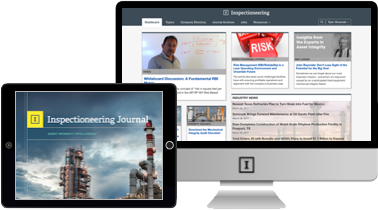Introduction
Whether you are a plant engineer doing your own fitness-for-service (FFS) assessments, a consultant supporting your client’s plants, or an internal “tech center” consultant supporting your plant engineers, there are always areas for improvement (e.g., uncertainties in the assessment, inaccuracies in the inputs, unclear reports, etc.) In this installment of the FFS Forum, I want to talk about some of the common issues and provide a handful of recommendations on how to improve them.
To expand my perspective on this, I reached out to a group of about a dozen engineers in the chemical and refining industry. This group included fixed equipment, reliability, maintenance, and corrosion engineers. I will focus on the needs and perceptions of these owner-user engineers who are ultimately responsible for the safety and reliability of the equipment. At the end of the article, I’ll list the takeaways – nine recommendations for better FFS assessment.
To be clear, this isn’t a scientific survey with accompanying statistical tests. But I think it is a useful collection of thoughts from plant engineers who have experience facing FFS issues.
When You’re Not Happy with an FFS Assessment, What Are the Most Likely Sources of Your Dissatisfaction?
In short, “bad assumptions” was a common theme. But many factors can contribute to bad assumptions such as a lack of ownership, poorly defined problems, and general uncertainty surrounding your procedures, technology, and data.
Lack of Ownership
Generally, the main FFS companies (you know who they are) have the “horsepower” to perform quality Level 2 or Level 3 assessments. Many of them also have high levels of knowledge and expertise in refining and many chemical processes. But nobody knows your plant, your equipment, or your problems as well as the people at your plant. So, no matter how skilled the analyst, the plant shouldn’t just cut a PO, email a few drawings, and wait for the report.
Plant personnel has to be involved in the process. They have to maintain ownership of the problem. When that doesn’t happen, there are typically not enough discussions, or the right people aren’t involved. Damage mechanisms are missed, loads or loading scenarios overlooked. The result often involves redoing portions of the work when (or if) the problems come to light.

















Comments and Discussion
Add a Comment
Please log in or register to participate in comments and discussions.